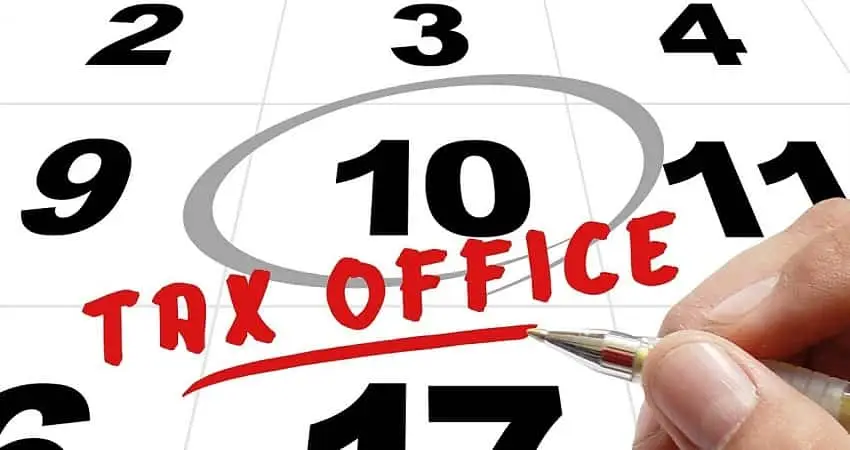Mastering Estimated Quarterly Taxes: A Comprehensive Guide
If you’re a freelancer, independent contractor, or small business owner, navigating estimated quarterly taxes can seem like a daunting task. However, mastering this essential aspect of tax management is crucial for staying compliant with the IRS and avoiding penalties. In this comprehensive guide, we will break down everything you need to know about estimated quarterly taxes, from understanding what they are to calculating and paying them efficiently.
What are Estimated Quarterly Taxes?
Estimated quarterly taxes are a method used by the Internal Revenue Service (IRS) to collect income and self-employment taxes from individuals and businesses that do not have taxes withheld from their income. If you earn income that is not subject to withholding, such as freelance earnings, rental income, or business profits, you are typically required to pay estimated quarterly taxes.
Who Needs to Pay Estimated Quarterly Taxes?
Various individuals and entities are subject to estimated quarterly tax payments, including:
- Self-Employed Individuals – Freelancers, consultants, and gig economy workers fall under this category. If you expect to owe $1,000 or more in taxes when you file your tax return, you should make quarterly tax payments.
- Business Owners – Sole proprietors, partners in partnerships, and S corporation shareholders are generally required to pay estimated quarterly taxes on their share of business profits.
- Individuals with Other Income Sources – Besides self-employment income, other sources like rental income, interest, dividends, and capital gains might necessitate estimated tax payments.
Understanding the Payment Schedule
The IRS has set specific due dates for estimated quarterly tax payments. These dates are:
- April 15: Payment for income earned from January 1 to March 31 is due.
- June 15: Payment for income earned from April 1 to May 31 is due.
- September 15: Payment for income earned from June 1 to August 31 is due.
- January 15: Payment for income earned from September 1 to December 31 is due.

If a payment due date falls on a weekend or a holiday, the deadline is extended to the next business day. It’s crucial to mark these dates on your calendar and plan ahead to avoid any potential late payment penalties.
Calculating Estimated Quarterly Taxes
Estimating your quarterly taxes accurately is essential to avoid underpayment penalties. Here’s how to calculate them:
- Gather Income Information – Compile all sources of income you expect to receive during the quarter. This might include business revenue, freelance income, interest, dividends, and rental earnings.
- Determine Your Adjusted Gross Income (AGI) – Your AGI is your total income minus any eligible deductions. Use the previous year’s tax return as a reference to calculate this.
- Calculate Taxable Income – From your AGI, subtract any additional deductions, exemptions, and credits to arrive at your taxable income.
- Apply the Appropriate Tax Rate – The tax rate varies depending on your filing status and taxable income. Refer to the IRS tax brackets to find the applicable rate.
- Factor in Self-Employment Tax – Self-employed individuals need to pay both income tax and self-employment tax. The self-employment tax rate is 15.3%, which covers Social Security and Medicare contributions.
- Account for Deductions and Credits – If you’re eligible for any deductions or credits, apply them to reduce your tax liability.
- Divide by Four – To arrive at your estimated quarterly tax payment, divide the total tax liability by four, representing each quarter of the year.
Making Quarterly Tax Payments
You have multiple options for making your estimated quarterly tax payments:
- Electronic Payment Online – The IRS’s Electronic Federal Tax Payment System (EFTPS) allows you to make secure online payments.
- Pay by Phone – You can pay your taxes by phone using the IRS’s voice response system.
- Mail Your Payment – If you prefer traditional methods, you can mail your payment along with the payment voucher provided by the IRS.
Common Mistakes to Avoid
Mastering estimated quarterly taxes involves avoiding some common pitfalls:
- Underestimating Income – Failing to account for all sources of income can lead to underestimating your tax liability and potential penalties.
- Missing Deadlines – Late payments can result in penalties and interest charges. Set reminders to ensure timely payments.
- Neglecting Tax Law Changes – Tax laws are subject to change. Stay informed about updates that may impact your quarterly tax calculations.
- Overlooking Deductions and Credits – Be thorough in identifying eligible deductions and credits to minimize your tax burden.
FAQs
If you overpay your estimated quarterly taxes, you can choose to have the excess amount applied to your next payment or claim a refund when filing your annual tax return.
If your income fluctuates throughout the year, you can use the annualized installment method to calculate your estimated quarterly taxes more accurately.
While it’s possible to pay all your estimated taxes in one go when filing your annual tax return, it’s generally not recommended. Making timely quarterly payments helps you avoid penalties and better manage your finances.
Managing estimated quarterly taxes is a critical aspect of financial responsibility for freelancers, independent contractors, and small business owners. By understanding the process of calculating and paying quarterly taxes, you can avoid penalties and ensure compliance with IRS regulations.
Remember, consulting a tax professional or CPA can provide personalized guidance tailored to your unique financial situation and ensure that you’re on the right track with your estimated quarterly taxes.






